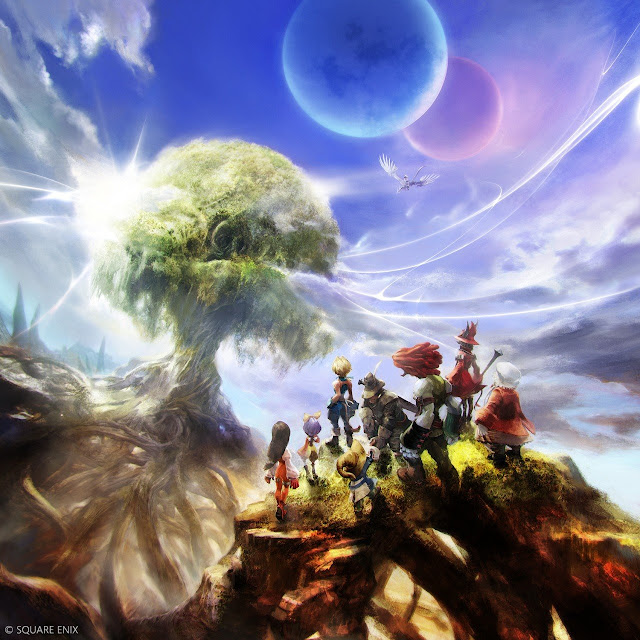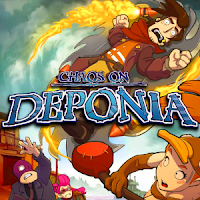The Devil May Cry game series has acquired a huge fanbase since it was first introduced in 2001, and it is considered a classic among hack n’ slash fans. So when a reboot of the series was announced it was met with both great excitement and skepticism. This time around the DMC game is developed by Ninja Theory, the team behind Heavenly Sword and Enslaved: Odyssey to the west. Perhaps the most controversial issue was not the game itself but the new style of Dante - the game’s main protagonist - which many believed that did not fit the character.
Being a big fan of the franchise I have to admit that I also was a bit skeptical, but on the other hand you cannot really judge a game until you play it, and in the end the new DMC, no matter the changes, is still a worthy part of the Devil May Cry franchise.
Although there are quite a few differences from the older games DMC still maintains a similar core when it comes to the story. This Dante is much younger, follows a rather “carefree” lifestyle, and doesn’t seem to be giving much of a damn about anything. He is also a bit more vulgar than his witty older self. Where in the previous games Dante was half-demon and half-human this time around his origin story has been slightly changed, making him a nephilim, a demon-angel hybrid, which grants him the power to see and also harm demons. In this modernized version of the story demons have crossed from their parallel dimension called Limbo to the human world; they live in disguise among people and they have managed to get total control over the media, which consequently allows them to also have control over the majority of the human population.

Of course not all humans have become the mindless pawns of the demons; an organization by the name of ‘The Oder’ has been formed trying to break their control over people. After Dante faces an unexpected attack, the Order - whose overall modus operandi clearly draws inspiration from V for Vendetta and the ‘Anonymous’ hacker group -manages to convince him to join them in their cause. In general, the story plays on the notion of demons using the media in order to hypnotize the masses and keep them in hand, which is an interesting premise and is executed quite well. The plot may be rather different than the one of the original series but there are little references scattered all over the game showing that the people in Ninja Theory not only did their homework but are also quite familiar with the Devil May Cry lore.
Among the new characters introduced in DMC is Kat, the game’s main female protagonist who serves fundamentally as a guide for Dante in his quests. Although Kat may not be as imposing as Trish, she is sweet and quite likeable, and she is devoted to the Order’s cause. Kat is not a clear love interest for Dante but she does serve as a catalytic factor for him to start caring about things, and also acts as the voice of reason when he starts becoming a bit too arrogant. Overall, the quality of both the voice acting and motion capture is quite high and gives the game a rather realistic feeling.
The first thing one will notice playing the game – besides the protagonist’s new hairstyle – is the urban/contemporary scenery which replaces the gothic locations of the previous titles. The various levels are diverse, cleverly designed and full of detail, and the atmosphere is certainly one of the strongest aspects of DMC. Perhaps the only problem that the title has considering the graphics is the few frame-drop issues which appear in the PS3 version. On the other hand, it is obvious that a lot of work was put in creating the game, the graphics are superb and the cutscenes blend quite smoothly with the gameplay.

If there is one part of DMC that truly remains faithful to the previous Devil May Cry games that’s the combat system. Although it has been significantly refurbished, it basically uses the same fighting mechanisms. Dante uses his trademark Rebellion sword as a melee weapon and his Ebony and Ivory firearms, but there are also a few other weapons to be acquired throughout the game. Being a nephilim, Dante also possesses both angelic and demonic powers which are always available and can be activated by pressing and holding the corresponding trigger button for each. His angelic powers tend to be quicker but less damaging when it comes to attacks where his demonic powers are slower but stronger. These powers also allow Dante to perform several grabbing and pulling moves, and quickly reach certain areas while moving around, but they also come in handy when creating special fighting combos. In fact, some enemies can only be weakened by using an angelic or demonic attack.
Speaking of combos, the series’ trademark stylish ranking system is also present in DMC. Depending on the kind of combo the player makes and their ability to maintain a specific fighting style during battle they receive a certain grade ranging from Dirty to SSSensational. Veterans of the series will soon notice that it is considerably easier to achieve the SS and SSS ranks in DMC than it was in the previous games. Reaching a rank of S or above will also slightly boost Dante’s speed for a while. The more enemies Dante strikes the more his Trigger Gauge fills, which eventually allows him to activate his Devil Trigger, a special ability which unlocks his full power potential. For the brief period that the Devil Trigger is activated Dante receives a boost in strength, speed and vitality, and is also able to somewhat manipulate his surroundings to his advantage. Additionally, while in Devil Trigger mode Dante’s appearance changes, giving him white hair, a red gleam in his eyes, and a red coat. Undeniably the game’s combat system is brilliantly designed, however, it does lack a lock-on feature which certainly is a disadvantage. Basically it is impossible to target a specific enemy, and while this is not much of a problem when battling just a couple of opponents, it can become frustrating during large battles and crucial moments where some fighting strategy is needed. Nevertheless, the battles are fluid, the combos are quite stylish and the overall gameplay is among the most enjoyable experiences that recent games have to offer.

During their first playthrough players have three difficulty options, Human, Devil Hunter and Nephilim, which are the equivalent of easy, medium and hard. Still, experienced hack n’ slash fans are not going to find the game very challenging, even in Nephilim mode. This could be considered a letdown if there weren't another 4 challenge modes to unlock after the game is completed. For those who want a more demanding experience DMC features the Son of Sparda and Dante Must Die modes, both of which are significantly harder to play. Additionally, there is the Heaven or Hell mode, where both the enemies and Dante die after only one hit, and the Hell or Hell mode, where enemies have to be fought as normal but Dante still dies after a single strike. These additional modes and a series of other unlockables, including costumes and extra missions, give the game great replayability.
In the end the comparison between DMC and the previous Devil May Cry games is inevitable, but it is also a bit unfair, as the title more than holds its own, even as an individual game. Dante may not be exactly how we remember him but he still manages to become likeable and eventually also grow as a character. The story is interesting and is set up quite well and the gameplay is polished and rather addictive. In a nutshell, DMC is an excellent game that hack n’ slash and action enthusiasts will surely enjoy. Fans of the series should also definitely give it a chance as it respects the source material and creates a different – and quite interesting - take on the story while maintaining some of the core aspects that made the previous titles so enjoyable.
Overall: 85/100
Originally written for New Game Network








































